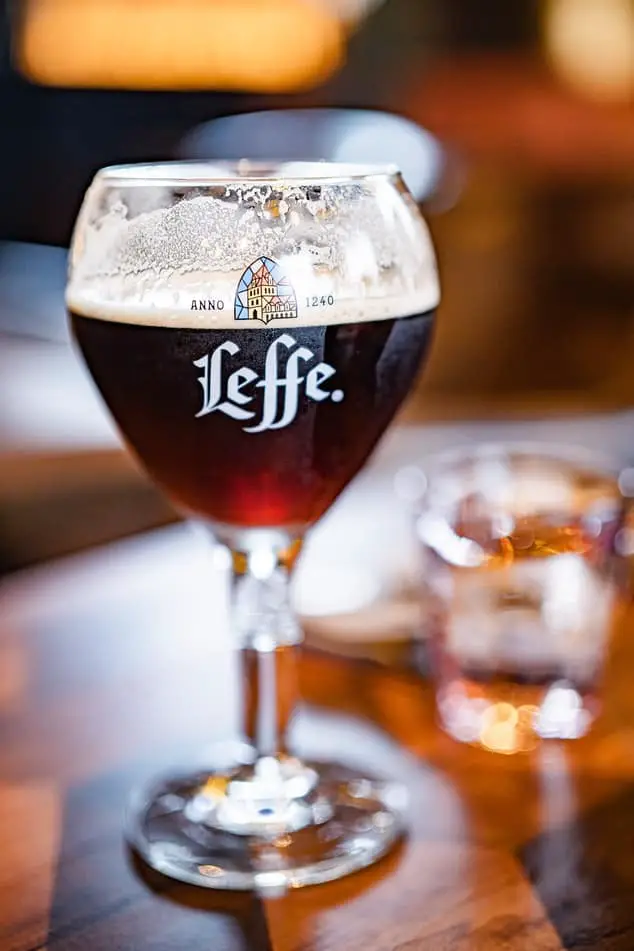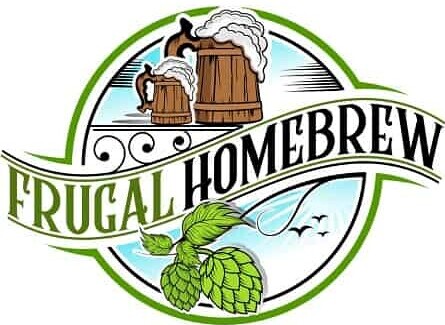The other day I was having a chat with my friend about brewing beer. We brewed a ton of west coast IPA’s and hefeweizen. I wondered though if brewing a tripel or dubbel required an entirely different process.
Brewing Belgian Style beer does not materially differ from the common brewing process. The difference in brewing Belgian style beer comes from the type of sugar used during the boil. Other differences can be the use of coriander or clove in the boil.
I was excited to learn that I actually already knew how to brew Belgian style beer. However, the process was not quite so black and white. It becomes really important to pay attention to the ingredients.
The Main Difference of Brewing a Belgian Beer
Brewing Belgian style beer while much the same as brewing any other kind of beer has a few main differences in the ingredients.
Did you think banana’s and various fruit flavors you get from drinking a Belgian beer come from actual fruit? The answer might shock you. It doesn’t!
There is no fruit actually used brewing most Belgian style beers. The fruit flavors actually come from what is called esters. These esters are created during the fermentation process.
Esters give Belgian beer that fruity taste and aroma even when no fruit has been added. In another article I wrote about infusing fruit into your beer, it can be a bit complicated but brewing a Belgian beer will give you the flavor without the need for fresh fruit. It was especially hard to come by in the middle ages after all.
These esters primarily arise from one main difference in the brewing process. That is the use of sugar during the boiling of wort. In particular Candi sugar is used.
The big difference between using sugar rather than actual fruit during the boil is to give the beer a much more clear and light body. The beer will end up less filling and achieve a high alcohol content.
While sugar is probably the most important difference when brewing a Belgian beer another more famous characteristic is the use of clove and coriander.
You can add a myriad of different spices during the boil to achieve a more complex flavor profile. However, you will want to still try and keep it simple the more complex you make it the bigger that chance of different flavors clashing.
I think when it comes to brewing a Belgian style beer I love how crisp and clear it comes, while still being very high in the ABV.
Adding Spices
When you are making a Belgian beer don’t be afraid to get a bit creative. You can add all sorts of spices during the boil. Some of the common spices added to Belgian Beer include:
- Coriander
- Clove
- Star Anise
- Cumin
- Orange
- Ginger
These is by no means an exhaustive list but just a place to get started. I’ve even thought about going to my local spice merchant.
If you have a spice merchant in your town it could be a ton of fun to just go in and take a look at the myriad of spices they have. Who knows you might find something interesting and flavorful and create an award winning beer.
The Mash Process of a Belgian Beer
Again when it comes down to it the mashing process is not any different brewing a Belgian beer than it would be brewing a west coast IPA. The difference comes in the ingredients used.
Generally you won’t be using nearly as much grain in the mash than you would if you were making an IPA. The sugars from the grain will give the beer flavor and profile but in order to make the beer light while still having a high ABV you don’t want the sugars to come from the grains.
The very practice of using less grains when brewing a beer will save you a lot of money. The practice of throwing tons of grain to get as much sugar from them is possible will cost you a pretty penny.
It is likely much cheaper to purchase the sugars that are added directly to the boil. This will also give you a a cleaner and lighter colored beer.
Fermenting Belgian Beer
Some Belgian Beers can get pretty high on alcohol content. It’s more important than ever to make sure that you have a yeast with a strong cell count.
You may even consider making a yeast starter to boost the quantity of your yeast. You will also likely want to use Belgian yeast. Belgian yeast will be able to handle the higher alcohol content.
Belgian yeast may contribute to the flavor and aroma of a Belgian beer but the sugar added during the boil is a very important contribute to the overall profile of any Belgian beer.
An interesting trick some American breweries have tried during the fermenting process is to start at a lower temperature and then gradually raise the temperature as the fermentation takes place.
A Tripel vs a Dubbel
both a tripel and dubbel are considered Belgian style beers but the ingredients differ. The classic difference between the two is essentially the color. A tripel is more clear and light colored, while a dubbel is darker.
The difference in fact can come from two main ingredients. A tripel will use light candi sugar and lighter lager and ale hops. While a dubbel will use dark candi sugar and roasted malts giving it that darker color.

A tripel often has higher alcohol content because of the large amount of grains used in the mash. This is often referred to as triple the normal amount.
To tell you the truth just thinking about drinking a tripel or dubbel right now is just making my mouth water. The perfect balance is truly delicious. Try a tripel if you are looking for something with a nice burn to it while a dubbel will taste a bit less fiery in your through.
Brewing a Belgian From Extract
You can brew Belgian style beer from extract recipies although when it comes to using extract on Belgians it might be more difficult to get the desired taste and consistency.
Brewing with extract is more expensive than from grain, but it might be even more expensive in the case of brewing Belgian style beers. Belgian beers don’t need that much grain.
I prefer brewing from grain simply because I know where my sugars are coming from. The sugars don’t have to be processed and stored. Instead I am allowing the chemical reactions to take place at the same time I brew.
Brewing a Belgian from extract is possible to do but when you are doing so many things around the boil it can get a little confusing. I like to keep it simple and separated.
The classic candi sugar used in Belgian beers also might not work in the same way as it would with an all grain recipe. You might wan’t to see if there are any kit’s on the market that might have a sugar that goes better with the extract recipe.
Belgian Beers are Famous for a Reason
Belgian beers are perfectly balanced. With hundreds of years of crafting beer recipes the trappist monks from Belgian developed excellent methods of brewing.
One of the reasons beer was brewed by monks was because the water was not clean during the middle ages. Hundreds of people would die from drinking water and nobody understood why.
When the water was boiled and beer was made people could drink the beer and not get sick. It was astounding, beer saved lives. While we know today the reason for this was because all of the bacteria was being boiled off in the water, back then it was not well known.
So the monks spent many years perfecting their craft so we today could enjoy their excellent beer. But don’t forget to drink your fresh water alongside and cheers like a king.
